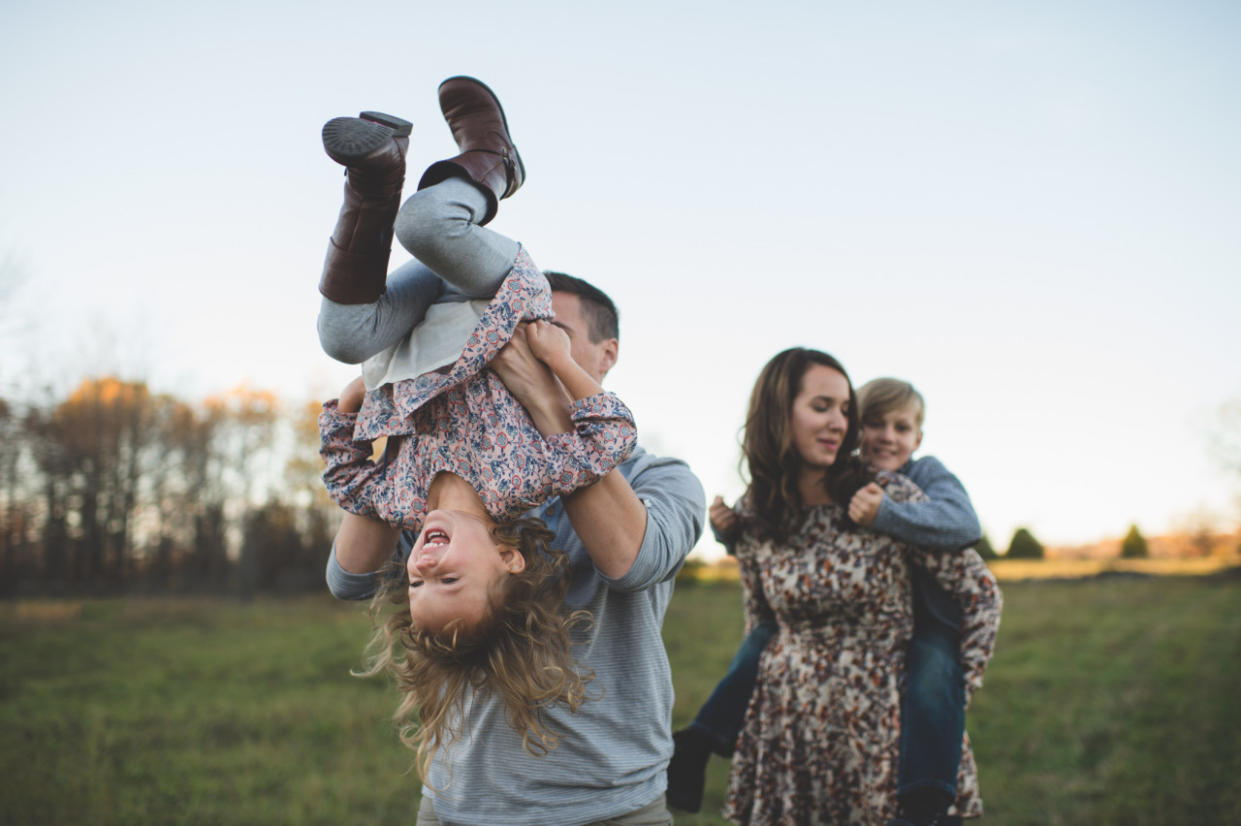Are Smaller Families Better for Kids?

From the von Trapps to the Jolie-Pitts, big families have a lot about them that’s worth romanticizing. But a new study has exposed some potential big-brood downsides for the kids, from behavioral issues to cognitive troubles.
The paper, by a trio of economists, examines 26 years of data on families and concludes that with every additional child joining the family mix, the other siblings are more likely to have trouble in school, problems with behavior, and even worse outcomes later in life. “The research showed that these effects weren’t a temporary side effect of the birth of a younger sibling, but persisted through childhood and into later life — resulting in lower education, lower earnings, more criminal behavior, and more teenage pregnancies,” noted the working paper, published in December by the National Bureau of Economic Research.
STORY: The Happiest Parents Just Might Surprise You
The economists — Chinhui Juhn and C. Andrew Zuppann of the University of Houston, and Yona Rubinstein of the London School of Economics — used data from the National Longitudinal Survey of Youth in 1979, which asked questions about kids’ math and reading skills, behavior, and home environments, such as how often parents read to them or help with homework; it followed up on cognitive abilities and noncognitive traits biannually through 2012.
“Sociologists may also be working on this question. But economists have been interested in how family size affects education and investments in children for a long time — going back to Gary Becker,” Juhn tells Yahoo Parenting, referring to the late Nobel laureate known for research that connected economics to aspects of daily life.
STORY: Is Birth Order Meaningless?
The new research, notes the Washington Post, “builds on older research that claims that families face a trade-off between the quantity of kids they have and the ‘quality’ of each kid — an awkward term that refers to things like how much education the child receives, whether they are employed when they grow up, and whether they end up with a criminal record.”
On average, the paper finds, children in larger families have lowered parental investment and worse cognitive and noncognitive outcomes — something the researchers found by examining data in three different ways: by looking at older children in households that experienced an “exogenous shock to family size” due to twin births; by comparing older children to themselves before and after the arrival of a younger sibling; and by examining older children who were surveyed within a narrow window of a sibling birth.
The researchers also split up “parental investment” into four different factors — time spent with kids, resources devoted to each child, affection doled out to kids, and the safety of home — and investigated each. They found that the amount of time spent with each child kid is what changed most significantly following the birth of a sibling.
They found that their measure of parental investment in older kids fell by 3 percentage points after a young child is born, while cognitive scores fell by 2.8 percentage points and behavioral problems increased.
“Importantly, we find that these negative effects are not merely temporary disruptions following a birth but in fact persist throughout childhood,” the paper notes. “When we decompose parental investments into time, resources, affection, and house safety, we find time to be the most critical input that decreases with additional children.”
The impact of family size may vary by type of parents or households, the researchers note, and might also vary by gender of the children, as the negative cognitive abilities seem most prominent with girls, while behavioral issues are seen more often with boys. “Why there is this gender difference is something we plan to investigate further in the future,” Juhn says.
Finally, the researcher stresses, “Our study does not rule out the possibility that children and parents may be happier and therefore better off in larger families, despite the lower investments in children.”
(Top photo: Erin Lester/Getty Images)
Please follow @YahooParenting on Facebook, Twitter, Instagram, and Pinterest. Have an interesting story to share about your family? Email us at YParenting (at) Yahoo.com.



